RFA Mounts Bay has arrived in the British Overseas Territory of Anguilla continuing its busy program of visits and engagements across the Caribbean under the North Atlantic Patrol Tasking.
Mounts Bay arrived on Wednesday 17th for a three day visit to the territory, the ship’s third on this deployment having previously visited in July at the beginning of its posting and then in September following Hurricane Irma. This follows a highly successful visit to the nearby British Virgin Islands last week.
Highlights of this latest visit will include two days of intensive training with local emergency services personnel the Royal Anguilla Police Force and the Anguilla Fire & Rescue Service covering a range of search and rescue skills.
Training, equipping and supporting local emergency services remains a key focus of the mission – as well as running training exercises the Mounts Bay has been involved in delivering donated equipment and providing advice on drafting local emergency management plans. These activities serve to build strong relationships between the ships crew and local services for when they are required to work together in times of disaster – as they did last September.
As with the visit to the British Virgin Islands, elements of the crew will also be volunteering to help ongoing recovery works from the hurricane disaster, lending their assistance to reconstruction and repair efforts at the Tender Loving Care Nursing Home.
Captain David Buck OBE has also held meetings with Governor Tim Foy OBE and other local government officials to outline the continuing role the vessel will play in the region under the Atlantic Patrol Tasking.
As well as humanitarian and disaster response operations, and maintaining a constant naval presence in the region, the vessel will be joining local and regional law enforcement organisations during the year to support a variety of counter-narcotics operations.



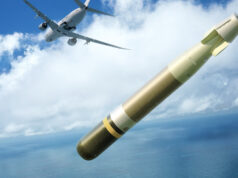
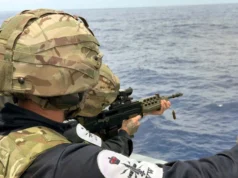
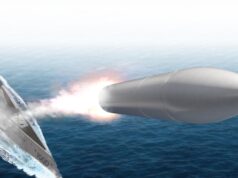
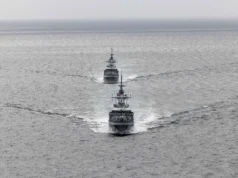
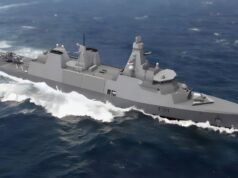

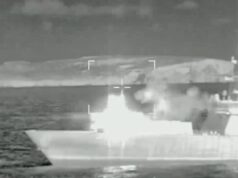
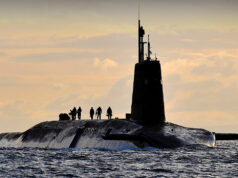
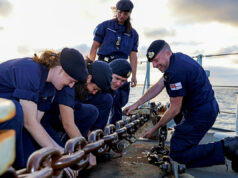
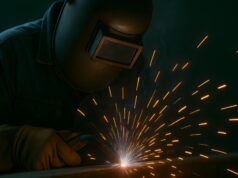

The Bay class have proven to be very useful and versatile ships.
Another 3 of them would be great, they would be straightforward to build and cheap to run and have superb load and troop carrying capacity. In many ways with a small hanger they are more useful in the patrol role than the new OPVs, having a greater presence and far more volume in the humanitarian role. In addition they are flexible enough to change role to mine warfare mothership and could I’m sure do a decent job as a hospital ship with a modular installation in the loading area. That is without being a LPD(A). Not all our ships need to be £500m or £1Bn each
I am not sure if a bay class vessel would suitable for fisheries protection which is one of the roles required of the rivers.
Jack you are correct but we didn’t need to build five R2s to replace the original Rivers that still have years left in them and where built with little more than Fishery protection duties in mind. That they have ventured across the Atlantic is more to do with having nothing else to deploy than their adequacy as long distance OPVs. Building additional Bays may have also tempted the Aussies to perhaps purchase a new build from a UK yard for completion at home. A sister ship for HMAS Choules would provide excellent back up for their two LHDs.
Or intercepting drug runners or shadowing Russian frigates through UK waters. The River 2 is ideal for these tasks. A combination of Bay mother ship and a squadron of River 2 or MCV ducklings has a lot to offer.
Paul the trouble is a River or Bay is too slow to track a drug runner so you need a helicopter and this role is mainly required in the Caribbean where a Bay is much more useful than an OPV. In my opinion a Russian Frigate needs to be escorted by an RN Frigate.
Your last line though reaffirms the point about the Bays with a simple mix of lesser units does has a lot to offer. A £750m escort is not required for many mundane naval tasks.
I’m thinking an RFA with a helo hanger plus a ‘squadron’ of OPVs with Scan Eagles and a deck that can refuel the helicopter would enable you to police a wider area than you could with a frigate. I think this is basically the strategy used in the Caribbean where the ‘squadron’ is a coalition of patrol vessels ( USCG, RN, RNL, RCN) most of which do not carry a helo but do carry Rhibs and boarding parties. Agree T31 will be better than R2 for escorting the Russian navy passages.
[…] security operations. RFA Mounts Bay maintains a regular schedule of territorial visits, having last visited Anguilla in January and recently started her tour in Grand […]